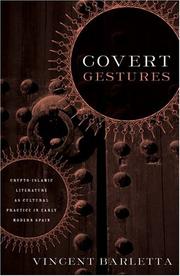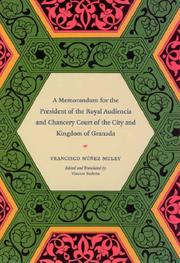| Listing 1 - 6 of 6 |
Sort by
|
Book
ISBN: 9780226685878 9780226685731 022668573X 022668587X Year: 2020 Publisher: Chicago University of Chicago Press
Abstract | Keywords | Export | Availability | Bookmark
 Loading...
Loading...Choose an application
- Reference Manager
- EndNote
- RefWorks (Direct export to RefWorks)
"Vincent Barletta traces an alternate history of rhythm theory, one linked not to repetition and temporality, as most of us understand the term, but rather to form, ethics, and the conditions of (human) being. Beginning with Archilochus, the Greek seventh-century BCE poet who wanted to know the "rhythm that holds us all," Barletta explores what we mean when we talk about "rhythm," how and to what extent we can know it, and what Archilochus's idea that rhythm "holds us all" might mean for us today. Barletta identifies three key "moments" in the long and varied history of rhythm to uncover their deeper implications for poetry, art, and philosophy. Beginning with the earliest, most explicit formulation of the meaning of rhythm in the dramatic, philosophical, and poetic works of the pre-Socratic Greeks, Barletta then links this early understanding of rhythm to the emergence of vernacular poetry, especially in the Iberian Peninsula, in the sixteenth century during the European quest for overseas empires. He brings his study into the twentieth century, where echoes of Archilochus's notion of rhythm have shaped much African, European, and Anglo-American thought, especially John Dewey and Emmanuel Levinas on aesthetics and ethics, Émile Benveniste on philology and rhythm, and Léopold Sédar Senghor on rhythm in the context of West African thought and the "Négritude" movement. Ultimately, the common thread that runs through these three historical moments, Barletta shows, is an approach to rhythm that transcends poetry, aesthetics, and even temporality. For Barletta, rhythm is a powerful force that holds us in place and shapes the very foundations upon which we and our contemporary world ultimately rest. "Rhythm speaks," he says, "to the very conditions of our being in the world." This study participates in the recent return to formalism in literary studies, and will find readers in a number of other areas, comparative literature, reception of classical poetry, and philosophy and literature, among them"--
LITERARY CRITICISM / General. --- Rhythm in literature. --- Rhythm. --- Rhythm --- 82.080 --- Rhythm in literature --- Aesthetics --- Movement, Psychology of --- Poetics --- Cycles --- Movement, Aesthetics of --- 82.080 Stilistiek --- Stilistiek

ISBN: 0816644756 0816644764 0816696721 Year: 2005 Publisher: Minneapolis University of Minnesota Press
Abstract | Keywords | Export | Availability | Bookmark
 Loading...
Loading...Choose an application
- Reference Manager
- EndNote
- RefWorks (Direct export to RefWorks)

ISBN: 1282537709 9786612537707 0226547280 9780226547282 9780226547268 0226547264 9781282537705 6612537701 Year: 2007 Publisher: Chicago University of Chicago Press
Abstract | Keywords | Export | Availability | Bookmark
 Loading...
Loading...Choose an application
- Reference Manager
- EndNote
- RefWorks (Direct export to RefWorks)
Conquered in 1492 and colonized by invading Castilians, the city and kingdom of Granada faced radical changes imposed by its occupiers throughout the first half of the sixteenth century-including the forced conversion of its native Muslim population. Written by Francisco Núñez Muley, one of many coerced Christian converts, this extraordinary letter lodges a clear-sighted, impassioned protest against the unreasonable and strongly assimilationist laws that required all converted Muslims in Granada to dress, speak, eat, marry, celebrate festivals, and be buried exactly as the Castilian settler population did. Now available in its first English translation, Núñez Muley's account is an invaluable example of how Spain's former Muslims made active use of the written word to challenge and openly resist the progressively intolerant policies of the Spanish Crown. Timely and resonant-given current debates concerning Islam, minorities, and cultural and linguistic assimilation-this edition provides scholars in a range of fields with a vivid and early example of resistance in the face of oppression.
Muslims --- Mohammedans --- Moors (People) --- Moslems --- Muhammadans --- Musalmans --- Mussalmans --- Mussulmans --- Mussulmen --- Religious adherents --- Islam --- History. --- Granada (Spain : Province) --- Granada (Province) --- Granada (Spain : Reino) --- latin america, regional, country, government, leadership, royalty, royals, memo, colonial, kingdom, city, occupation, conversion, converts, muslim, prejudice, religion, faith, history, historical, academic, scholarly, research, christian, christianity, letter, 16th century, 1500s, renaissance, middle ages, protest, assimilation, laws, legal, castilian, translation.
Book
ISBN: 1282584634 9786612584633 0226037398 9780226037394 9780226037363 0226037363 Year: 2010 Publisher: Chicago ; London University of Chicago Press
Abstract | Keywords | Export | Availability | Bookmark
 Loading...
Loading...Choose an application
- Reference Manager
- EndNote
- RefWorks (Direct export to RefWorks)
Though Alexander the Great lived more than seventeen centuries before the onset of Iberian expansion into Muslim Africa and Asia, he loomed large in the literature of late medieval and early modern Portugal and Spain. Exploring little-studied chronicles, chivalric romances, novels, travelogues, and crypto-Muslim texts, Vincent Barletta shows that the story of Alexander not only sowed the seeds of Iberian empire but foreshadowed the decline of Portuguese and Spanish influence in the centuries to come. Death in Babylon depicts Alexander as a complex symbol of Western domination, immortality, dissolution, heroism, villainy, and death. But Barletta also shows that texts ostensibly celebrating the conqueror were haunted by failure. Examining literary and historical works in Aljamiado, Castilian, Catalan, Greek, Latin, and Portuguese, Death in Babylon develops a view of empire and modernity informed by the ethical metaphysics of French phenomenologist Emmanuel Levinas. A novel contribution to the literature of empire building, Death in Babylon provides a frame for the deep mortal anxiety that has infused and given shape to the spread of imperial Europe from its very beginning.
Spanish literature --- Portuguese literature --- History and criticism. --- Alexander, --- Alejandro, --- Alekjhāṇḍara, --- Aleksandar, --- Aleksander, --- Aleksandr, --- Alekʻsandre, --- Aleksandros bar Filipos, --- Aleksandŭr, Makedonski, --- Alessandro, --- Alexander --- Alexandre, --- Alexandros --- Alexandros, --- Alexandros, Megalos, --- Alexandru, --- Alexantros, --- Aleksandŭr, --- Александър, --- Iskandar, --- Maḳdonya, Aleksandros bar Filipos, --- Makedonski, Aleksandŭr, --- Македонски, Александър, --- Megalexandros, --- Megas Alexandros, --- Nagy Sándor, --- Sikandar, --- Iskender, --- Μέγας Ἀλέξανδρος, --- Ἀλέξανδρος, --- Ἀλέξανδρος --- אלכסנדר בן פיליפוס, --- אלכסנדר, --- اسكندر كبير --- اسکندر اعظم --- سکندراعظم --- In literature. --- Spain --- History
Book
ISBN: 022601116X 022601133X 022601147X 9780226011479 9780226011165 9780226011332 Year: 2013 Publisher: Chicago London
Abstract | Keywords | Export | Availability | Bookmark
 Loading...
Loading...Choose an application
- Reference Manager
- EndNote
- RefWorks (Direct export to RefWorks)
In this anthology, Vincent Barletta, Mark L. Bajus, and Cici Malik treat the Iberian lyric in the late Middle Ages and early modernity as a deeply multilingual, transnational genre that needs to break away from the old essentialist ideas about language, geography, and identity in order to be understood properly. More and more, scholars and students are recognizing the limitations of single-language, nationalist, and period-bound canons and are looking for different ways to approach the study of literature. The Iberian Peninsula is an excellent site for this approach, where the history and politics of the region, along with its creative literature, need to be read and studied together with the way the works were composed by poets and eventually consumed by readers. With a generous selection of more than one hundred poems from thirty-three poets, Dreams of Waking is unique in its coverage of the three main languages—Catalan, Portuguese, and Spanish—and lyrical styles employed by peninsular poets. It contains new translations of canonical poems but also translations of many poems that have never before been edited or translated. Brief headnotes provide essential details of the poets’ lives, and a general introduction by the volume editors shows how the poems and languages fruitfully intersect. With helpful annotations to the poetry, as well as a selected bibliography containing the most important editions and translations from all three of the main Iberian languages, this volume will be an indispensable tool for both specialists and students in comparative literature.
Spanish poetry --- Portuguese poetry --- lyric, poetry, 15th century, 16th, 17th, 18th, middle ages, modernity, transnational, multilingual, translated works, language, geography, identity, iberian peninsula, creative writing, catalan, spanish, portuguese, marques de santillana, inigo lopez mendoza, ausias march, joan rois corella, gil vicente, garcia resende, bernardim ribeiro, cristobal castillejo, francisco sa miranda, bosca, garcilaso vega, antonio ferreira, pero andrade caminha, fray luis leon, timoneda, aljamiado, francesc fontanella, miguel cervantes saavedra. --- Galician poetry
Book
ISBN: 9780226376462 9780226465739 9780226465876 022646587X 022637646X 022646573X Year: 2017 Publisher: Chicago
Abstract | Keywords | Export | Availability | Bookmark
 Loading...
Loading...Choose an application
- Reference Manager
- EndNote
- RefWorks (Direct export to RefWorks)
Galileo never set foot on the Iberian Peninsula, yet, as Enrique García Santo-Tomás unfolds in The Refracted Muse, the news of his work with telescopes brought him to surprising prominence-not just among Spaniards working in the developing science of optometry but among creative writers as well. While Spain is often thought to have taken little notice of the Scientific Revolution, García Santo-Tomás tells a different story, one that reveals Golden Age Spanish literature to be in close dialogue with the New Science. Drawing on the work of writers such as Cervantes, Lope de Vega, Calderón de la Barca, and Quevedo, he helps us trace the influence of science and discovery on the rapidly developing and highly playful genre of the novel. Indeed, García Santo-Tomás makes a strong case that the rise of the novel cannot be fully understood without taking into account its relationship to the scientific discoveries of the period.
Fiction --- Spanish literature --- anno 1500-1599 --- anno 1600-1699 --- Spanish fiction --- Literature and science --- Science --- History and criticism. --- History --- Baroque. --- Galileo Galilei. --- Spain. --- literature. --- optics.
| Listing 1 - 6 of 6 |
Sort by
|

 Search
Search Feedback
Feedback About UniCat
About UniCat  Help
Help News
News